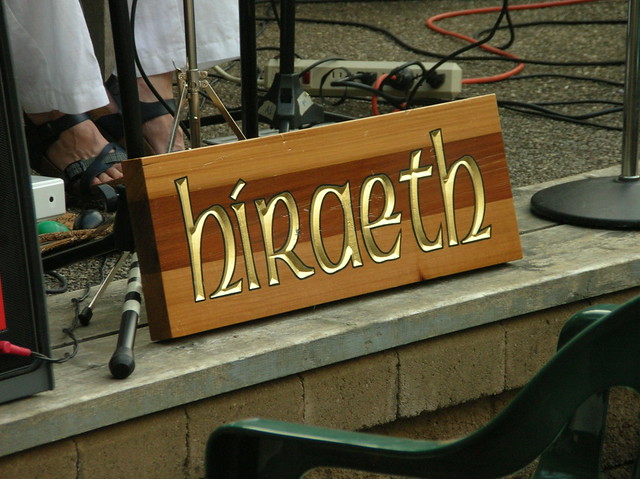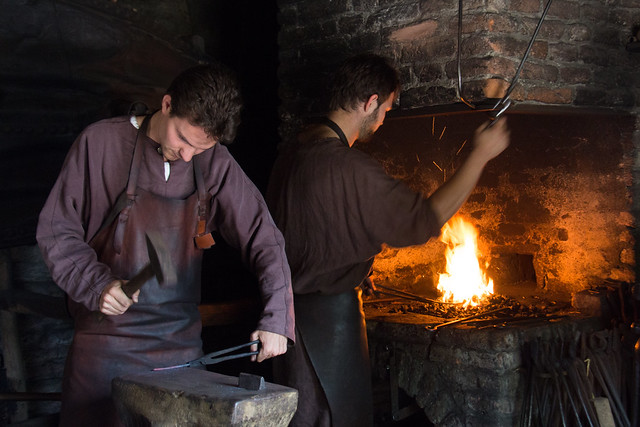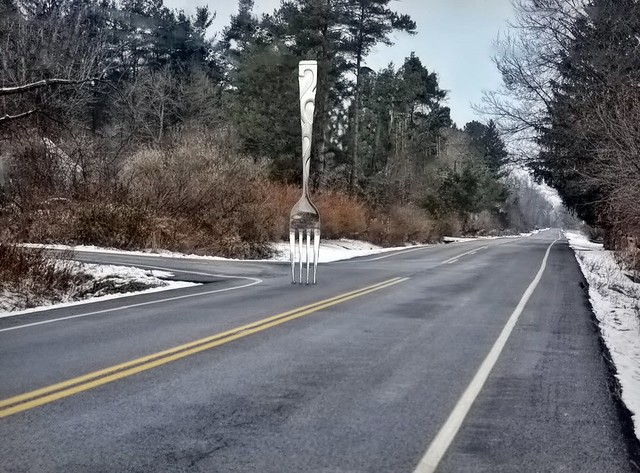Today we’re looking at the words for festival, feast and related things in Celtic languages.
Words marked with a * are reconstructions.
| Proto-Celtic | *lītus = feast, celebration |
|---|---|
| Old Irish (Goídelc) | líth [l͈ʲiːθ] = festival, feast-day, festivity, luck |
| Middle Irish (Gaoidhleag) | líth = festival, feast-day, festivity, entertainment, rejoicing, luck, properity líthech = festive |
| Irish (Gaeilge) | líth [ˈfʲeːlʲə] = festival, festivity, rejoicing; (good) omen, good luck, prosperity lítheach = festive |
| Scottish Gaelic (Gàidhlig) | lì, lìthe [l̪ʲiː] =paint, colour, tinge, hue, complexion, properity, happiness |
| Middle Breton (Brezonec) | lyt, lid = ceremony, rite |
| Breton (Brezhoneg) | lid = ceremony, rite, worship, jubilation |
Etymology possibly from the Proto-Indo-European *leyH- (flow) [source].
| Proto-Celtic | *westā = food, feast |
|---|---|
| Old Irish (Goídelc) | feis, fess, feiss = entertainment, feast; night’s lodging |
| Middle Irish (Gaoidhleag) | feis(s), fess = spending the night, sleeping, accommodation for the night, entertainment for the night, food, supper, feast, festival fes(s)id = spend the night, stops (in a place), remains |
| Irish (Gaeilge) | feis [fʲɛʃ] = festival, carnival; act of sleeping, accommodation, entertainment, bed and supper |
| Scottish Gaelic (Gàidhlig) | fèis [feːʃ] = festival fèist [feʃdʲ] = entertainment, feast fèistear [feːʃdʲər] = entertainer fèisteas [feːʃdʲəs] = entertainment |
| Manx (Gaelg) | feish = assembly, carnival, festival, fete |
| Middle Welsh (Kymraec) | gwest = night’s stay/lodging, night’s sleep/rest, lodging, hospitality guestei, gwestai = guest, visitor, visiting stranger, sojourner; beggar, parasite, host guesti, gwesti = to stay, rest, remain, lodge, lodging, abode, welcome, reception, sustenance, guest, lodger gwestwyr, gwestywr = guest visitor, host |
| Welsh (Cymraeg) | gwest [ɡweːsd/ɡwɛsd] = night’s stay/lodging, night’s sleep/rest, lodging, hospitality, welcome, entertainment, provision, maintenance, food-rent, feast, banquet; guest, visitor gwestai = guest, visitor, visiting stranger, sojourner; beggar, parasite, host gwesti = to stay, rest, remain, lodge, lodging, abode, welcome, reception, sustenance, guest, lodger gwest(i)wr = guest visitor, host gwestu = to spend a night, sleep, rest, lodge, visit, feast, borrow, beg, sponge (upon) gwesty = lodging, guest-house, inn, hotel gwestya = to lodge, live in lodgings, show hospitality to (guests), welcome |
| Cornish (Kernewek) | gwester = guest gwesti = guesthouse gwestva = hospitality |
| Old Breton | guest = feast |
Etymology possibly from the Proto-Indo-European *h₂wes- (to reside) [source].
| Proto-Celtic | *wlidā = food, feast |
|---|---|
| Old Irish (Goídelc) | fled [fʲlʲeð] = banquet, feast |
| Middle Irish (Gaoidhleag) | fled = feast, banquet, carousal, beverage fletech = a banqueting-house or hall |
| Irish (Gaeilge) | fleá [fʲlʲaː / fʲlʲɑː / fʲlʲæː] = (drinking) feast fleá cheoil = festival of music fleách = festive, convivial fleáchas = festivity, conviviality fleadhaigh = to feast, carouse< |
| Scottish Gaelic (Gàidhlig) | fleadh [flɤɣ] = feast, reception fleadh-bainnse = wedding reception fleadhach [flɤɣəx] = feasting, banqueting, entertaining fleadhadh = (act of) conviving, gathering for feasting/td> |
| Manx (Gaelg) | fleah = banquet, feast fleah foalley = barbeque |
| Proto-Brythonic | *gwleð [ˈɡwlɛːð] = feast, banquet |
| Old Welsh | guled = feast, banquet |
| Middle Welsh (Kymraec) | gwledd = feast, banquet |
| Welsh (Cymraeg) | gwledd [ɡwleːð] = feast, banquet, repast, carousal, revelry, sumptuous meal gwleddu = to partake of a feast or banquet, feed with relish or enjoyment, carouse, revel, observe a festival gwleddol = convivial, festive, banqueting, feasting, feaster gwleddoldeb = festivity gwleddwr = banqueter, guest, frequenter of feasts, reveller, carouser |
| Cornish (Kernewek) | gwledh = banquet |
| Old Breton | gloê = feast, banquet |
Etymology possibly from the Proto-Indo-European *wldeh₂, from *welh₁- (to wish, desire, want) [source].
| Old Irish (Goídelc) | féil = festival, feast-day |
|---|---|
| Middle Irish (Gaoidhleag) | féil, fel = a festival, feast-day féilire = a calendar, almanac fletech = a banqueting-house or hall |
| Irish (Gaeilge) | féile [ˈfʲeːlʲə] = festival, feast (day) féilire = calendar féiltiúil = pertaining to festival, festive; periodic, recurrent, regular, punctual féiltiúlacht = observance of feast days, seasonableness, regularity, punctuality |
| Scottish Gaelic (Gàidhlig) | féill [feːl̪ˠ(ə)] = feast, festival, holy day fair, sale, market féilleachd [feːl̪ˠəxɡ] = festivity, festivities |
| Manx (Gaelg) | feaill [ˈsolan] = festival, holy day feailley = feast, festival, fête, holiday, holy day, sacred feaillys = festivity, sacredness, vacation |
| Middle Welsh (Kymraec) | gwyl, gŵyl = holiday, holy-day, religious festival |
| Welsh (Cymraeg) | gŵyl [ˈhalɛn / ˈhalan] = holiday, holy-day, religious festival, fête; watch, guard, vigil gŵyl y Banc = Bank Holiday |
| Middle Cornish | goil = festival, holiday |
| Cornish (Kernewek) | gool = fair, feast, festival, vigil, wake Gool Enys = carnival |
| Middle Breton (Brezonec) | goel = (religious) festival, fête |
| Breton (Brezhoneg) | gouel = (religious) festival, fête |
Etymology from the Latin vigilia (wakefulness, watch), from vigil (awake), from the Proto-Indo-European *weǵ- (to be strong) [source].
The English words vigil, vigilant come from the same Latin root, and wake and watch come from the same PIE root, via Proto-Germanic [source].
Sources: Wiktionary, Am Faclair Beag, Online Manx Dictionary, Teanglann.ie, eDIL – Electronic Dictionary of the Irish Language, In Dúil Bélrai English – Old Irish glossary, Geiriadur Prifysgol Cymru, Gerlyver Kernewek, Lexicon Cornu-britannicum: A Dictionary of the Ancient Celtic Language of Cornwall, Dictionaire Favereau, TermOfis, Le dictionnaire diachronique du breton, Etymological Dictionary Of Proto Celtic












